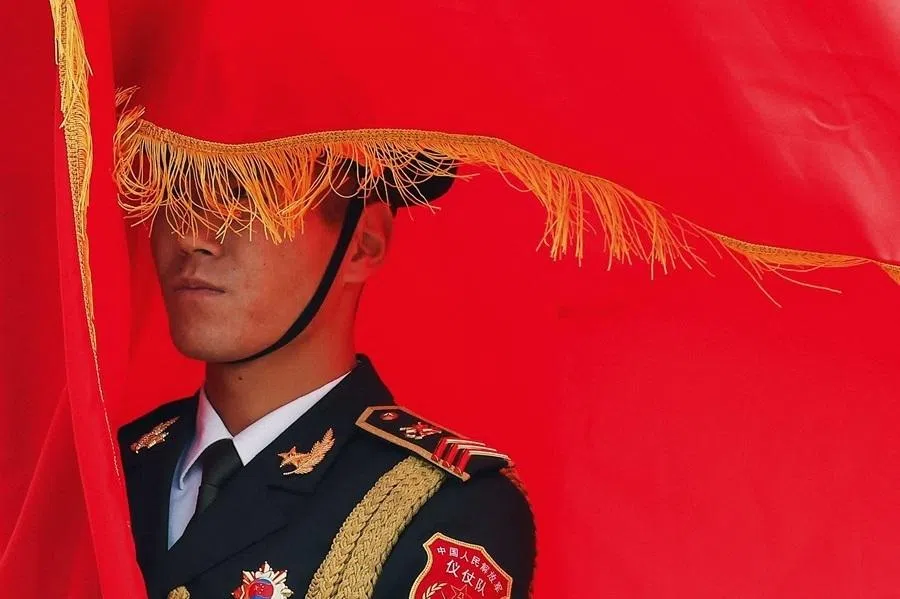[Big read] Chinese kindergartens struggle with falling birth rates
Lianhe Zaobao journalist Liu Liu speaks with industry insiders about the dire state of China’s kindergartens amid the population crisis.
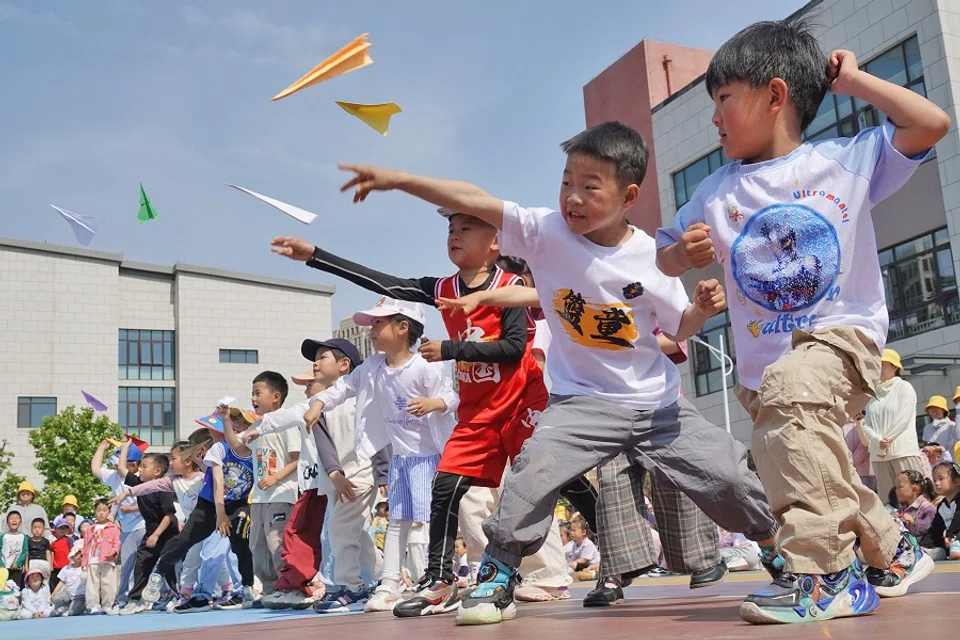
“Every day, a teacher is assigned to manage publicity and promotion,” Chen Qun, a teacher at a private kindergarten in Chongqing, told Lianhe Zaobao. After the kindergarten faced enrolment issues two years ago, their teachers are now required to distribute flyers to attract students.
Chen, 27, has been working in early childhood education since she graduated from university, as she loves children and it fits well with her personality.
However, with declining kindergarten enrolment, her role has expanded from solely interacting with children to also handling publicity and market expansion. While she feels “somewhat helpless”, she notes that this situation is common across many kindergartens.
Kindergartens’ all-out efforts to boost enrolment
China’s falling birth rate has affected the number of kindergarten students, leading to a wave of closures in many areas.
China recorded 9.02 million births in 2023, the lowest figure since records began in 1949. According to statistics from China’s Ministry of Education, there were 274,400 kindergartens in China last year, 14,800 fewer than the year before, with the number of kindergarten students dropping 5.35 million from 2022.
He Juying, principal of a private kindergarten in Fuqing, Fujian, said in an interview that several kindergartens in the area have closed, while theirs is also under-enrolled. Enrolment shrank by 30% in 2023 compared with the peak period in 2022; the situation for the new semester starting this September is even worse, with a projected decrease of an additional 10%.
... some kindergarten principals revealed plans to expand the enrolment range to as young as one year old to increase the number of students.
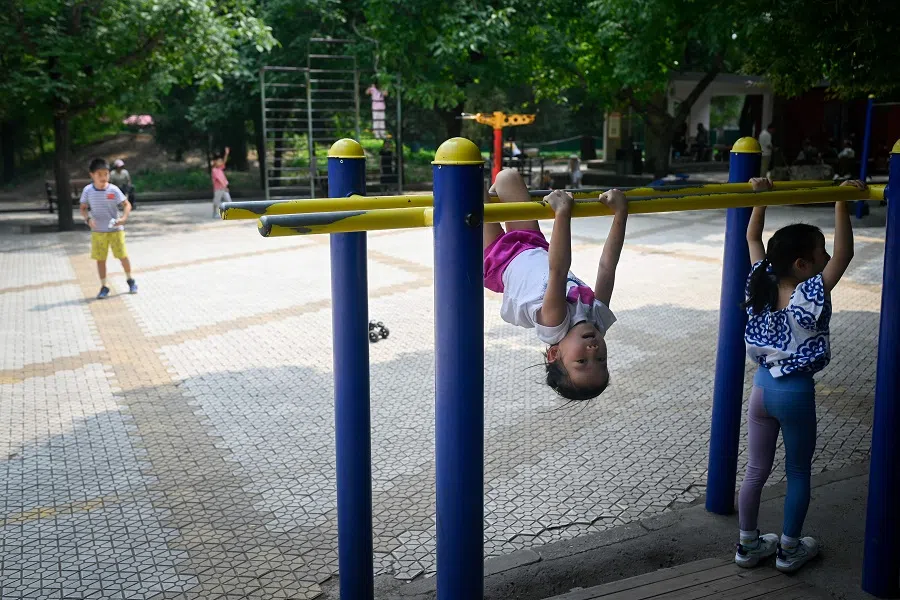
Another private kindergarten in Quanzhou, Fujian, is in the same predicament. The kindergarten’s principal told Lianhe Zaobao that compared with the peak period, enrolment will be down at least 20% this year.
Kindergartens struggling to survive due to enrolment challenges are forced to ramp up their publicity efforts. He Juying shared that the kindergarten organises free parent-child activities based on its unique features to attract parents’ attention.
Many kindergartens have created accounts on social media platforms like Douyin, where they host online events to boost their visibility and invite potential clients to attend regular offline meetups.
While Chinese kindergartens typically enrol children at the age of three, some kindergarten principals revealed plans to expand the enrolment range to as young as one year old to increase the number of students.
Compared with private kindergartens, public kindergartens are more competitive in terms of funding and facilities due to policy support.
... some private kindergartens have reduced the number of classes and chosen not to renew their teachers’ contract.

After China announced its two-child policy in October 2015, the country recorded a brief peak in births in the following two years. In a document released in 2018, officials explicitly vowed to vigorously develop public kindergartens to accommodate the increased number of students.
However, China’s birth rate has declined since then and the two-child policy fell short of expectations. Enrolment in public kindergartens also plummeted.
Chinese media reported that the kindergarten of a state-owned enterprise in Wuhan had only admitted the children of its employees for over two decades, but started to enrol the children of non-employees for the first time during the spring semester last year.
Kindergartens to retirement homes
With the declining number of kindergarten students, some private kindergartens have reduced the number of classes and chosen not to renew their teachers’ contract.
The oversupply of teachers and shortage of positions in early childhood have also forced many to switch careers. Some kindergarten teachers shared on social media that they were going to become clerical staff, customer service providers, human resource personnel and manicurists, while others have taken on positions at elderly care facilities.
China’s younger generation is unwilling to have children, and the implementation of the two-child policy has fallen far short of government expectations. — He Yafu, Demographer
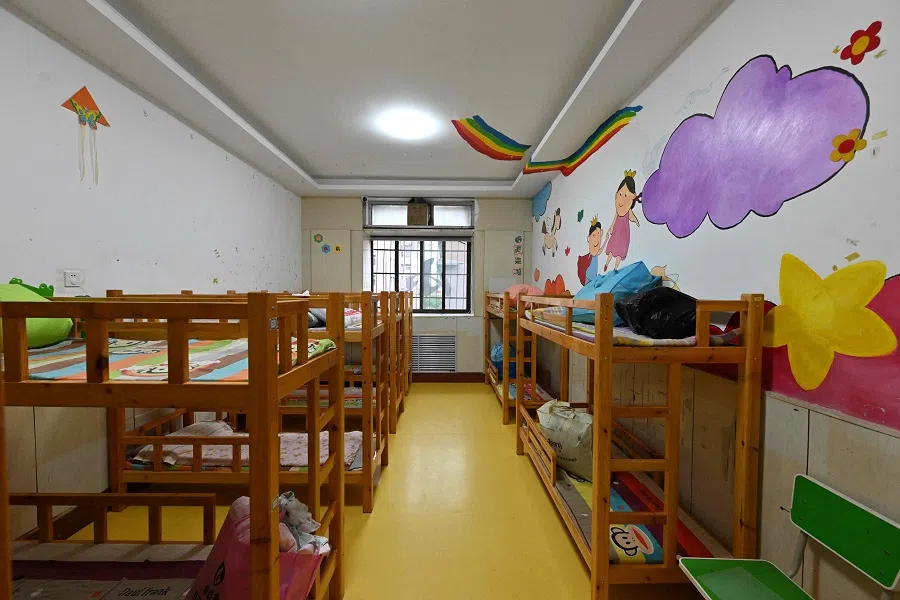
According to several Chinese media outlets and Agence France-Presse, some kindergartens are transforming into retirement homes to cater to the needs of an ageing population. However, it is not that easy for kindergarten teachers to make that professional switch.
Chen Qun, who values job stability, said that she had considered changing careers but was hesitant as she was unfamiliar with the outside world after working in a kindergarten for so long. She gave up on the idea after seeing colleagues leave and return within a year.
Even in public kindergartens with relatively secure jobs, teachers are deeply concerned about their career prospects.
Ming, a teacher in a public kindergarten in Chongqing, said in an interview that she is anxious. Although stronger than private ones, public kindergartens will eventually face the same challenges after private kindergartens go through a period of intense competition. “In any case, there’s a sense of crisis this year,” she said.
Demographer He Yafu said when interviewed that China’s younger generation is unwilling to have children, and the implementation of the two-child policy has fallen far short of government expectations. The number of births will continue to decline, and kindergartens will continue to face challenges in enrolment.
The economic downturn and lack of consumer confidence are among the reasons why some high-end private kindergartens are facing operational difficulties.
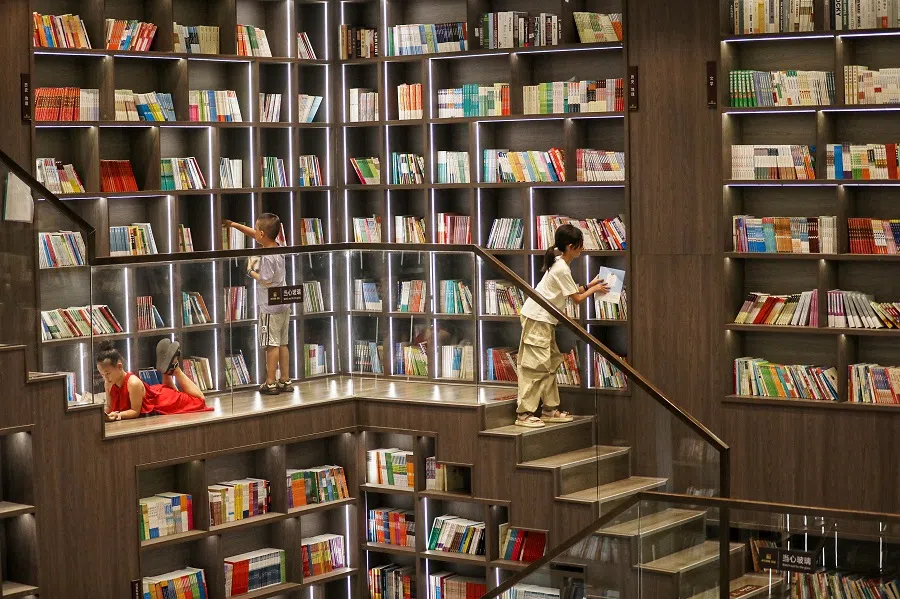
In May 2021, the “three-child policy” was introduced to encourage young people to have children, and many places in China have since announced supporting policies, including childcare subsidies, maternity leave and housing guarantees. However, the implementation has been less than ideal.
He Yafu believes that childcare subsidy policies should be implemented at the central level, as many local governments lack the financial resources to provide these subsidies. Additionally, due to population mobility, local governments may not be the primary beneficiaries of higher birth rates, which reduces their motivation to enforce such policies.
High-end private kindergartens in trouble
High-end private kindergartens that emphasise elite education and internationalisation were once in high demand in China’s first-tier cities a few years ago. However, amid the current economic downturn, parents are more concerned about cost-effectiveness when choosing kindergartens, exacerbating these high-end private kindergartens’ struggle to survive.
Chinese media reported in 2020 that many high-end private kindergartens in Shanghai had costly tuition fees but were still in demand, with parents queuing for over a year for many of them.
Diyi Kindergarten in Shanghai’s Xuhui district, known for its art and sports programmes, was also popular among local parents. However, this high-end kindergarten, which charged around 8,500 RMB (US$1,192) per month, announced in March this year that it would cease operations due to the declining population.
The economic downturn and lack of consumer confidence are among the reasons why some high-end private kindergartens are facing operational difficulties.
Wang Juan, who runs a private kindergarten in Chongqing, told Lianhe Zaobao that a local private kindergarten that focuses on natural forest education had a monthly tuition fee of up to 8,000 RMB; the once-popular institution has been struggling to operate in the past couple of years.
Wang explained, adding that her own kindergarten has reduced its monthly tuition fee from 1,880 RMB to 1,480 RMB. According to her, a nearby kindergarten has reduced its tuition fee by as much as 40%.
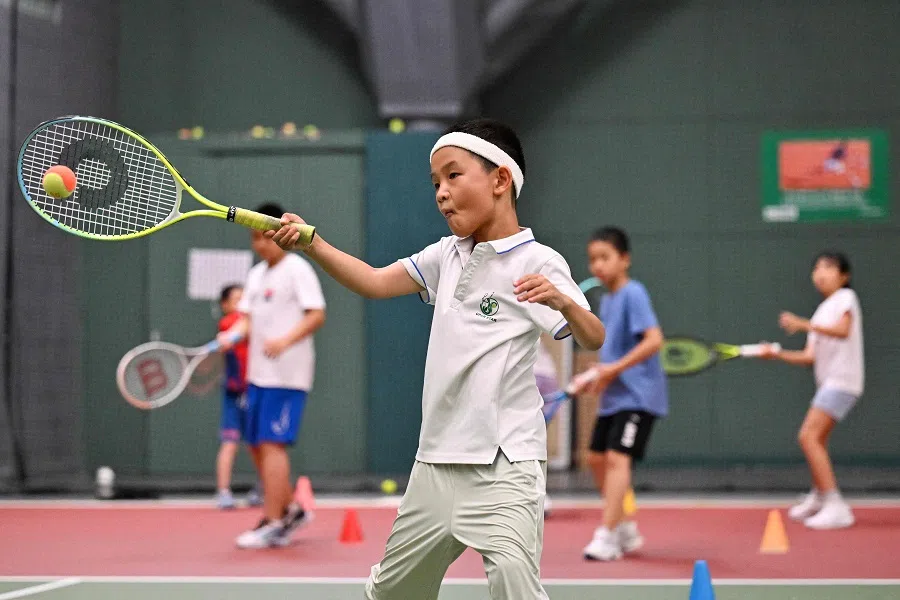
“Now that everyone’s economic situation has tightened, parents are more concerned about cost-effectiveness,” Wang explained, adding that her own kindergarten has reduced its monthly tuition fee from 1,880 RMB to 1,480 RMB. According to her, a nearby kindergarten has reduced its tuition fee by as much as 40%.
To cater to parents’ pursuit of cost-effectiveness, many kindergartens are also offering promotions during recruitment, such as early bird discounts and preferential prices for the second child.
Nonetheless, Wang remains confident in her team and future development. She said, “Although running a kindergarten is difficult, it’s the same situation across every industry right now. We need to have a unique business approach if we want to survive.”
This article was first published in Lianhe Zaobao as “生育率低招生困难 中国幼儿园苦苦支撑”.



![[Big read] When the Arctic opens, what happens to Singapore?](https://cassette.sphdigital.com.sg/image/thinkchina/da65edebca34645c711c55e83e9877109b3c53847ebb1305573974651df1d13a)

